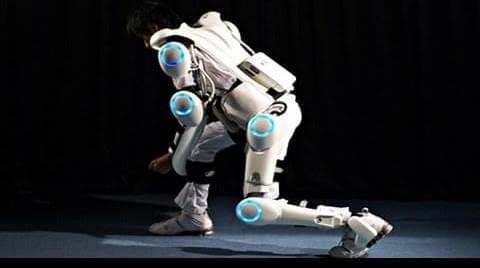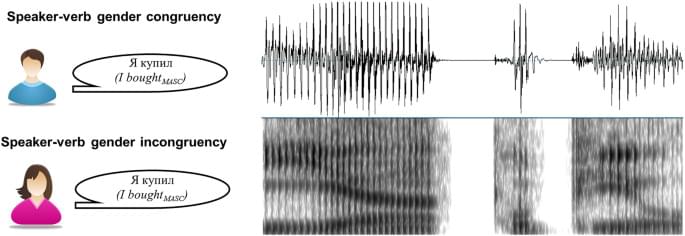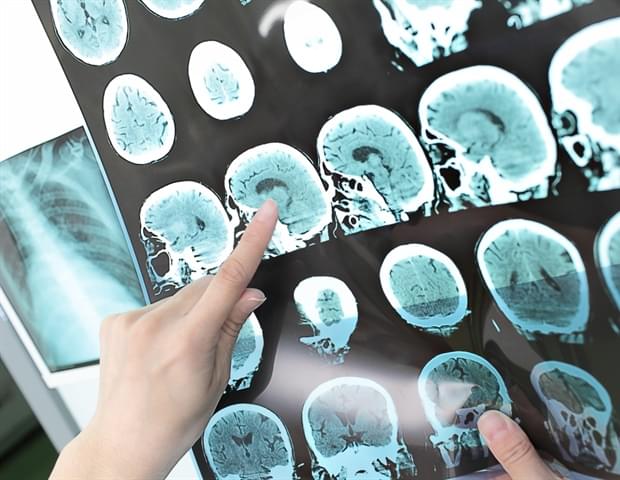Page 3201
Sep 24, 2022
Neurophysiological correlates of automatic integration of voice and gender information during grammatical processing
Posted by Saúl Morales Rodriguéz in categories: neuroscience, sex
Other ERP studies have reported diverse neurophysiological responses to inconsistencies between the message meaning and the speaker’s representation, typically manifest as a modulation of the N400 and/or P600 components15,16,17. Different patterns of ERP results reported in these studies are likely related to the nature of the mismatch manipulations used. For instance, whereas the P600 component is typically associated with a reanalysis/repair of syntactic incongruences and grammatical violations18, in experiments modulating the speaker’s voice it can also be elicited by the violations of the stereotypical noun roles in the absence of grammatical incongruencies as such (e.g., “face powder” or “fight club”, produced by male and female voices, respectively16) as well as the general assumptions based on the pronoun processing during sentence comprehension19. In contrast, the semantically-related N400 effect has been typically found for the semantic-pragmatic incongruences (e.g., “I am going to the night club” by child’s voice17).
Interestingly, these ERP effects offer support to two models of pragmatic language comprehension—the standard, two-step model and the one-step model. The two-step model claims that listeners compute meaning first, in isolation, and that the communicative context is considered at the second stage (speaker’s information, in particular16,20), as reflected in the late P600 responses. More recent findings showed, however, that this pragmatic (extralinguistic) integration is likely happening in a single-step manner already during semantic processing, as reflected in the N400 effect17,21. Nevertheless, other studies also reported the overlap of both processing stages, showing an N400 effect elicited by expectation error and a late P600 effect for overall reanalysis of this expectation22.
Understanding how gender information is integrated by the listeners is particularly important when one considers the differences in how different languages signal grammatical gender. In some languages, such as in English, Finnish or Mandarin, overt grammatical gender marking is almost completely absent. Many other languages, such as Slavic languages, explicitly mark grammatical gender in nouns, verbs, and adjectives, often in a complicated interdependent manner. Russian is one of such languages, offering an optimal testbed for investigating linguistic and extralinguistic gender integration. As far as we know, there is only one study addressing this question in a Slavic language: using Slovak, Hanulíková Carreiras23 found that, during an active-listening task, the integration of speaker-related information and morphosyntactic information occurred rather late during complex sentence processing. Additionally, a conflict between the speaker’s and the word’s genders (e.g., “I– \(stole_{MASC}\) plums” in female voice) was reflected in the modulation of the N400 component. Given that N400/LAN modulations have been consistently found for morphosyntactic violations, in particular for number, person, and gender agreement, as well as in phrase structure violations (e.g.,24, see also for review25), this result may suggest that extralinguistic information is directly integrated during online (morpho)syntactic processing (such as speaker’s sex converted into subject’s gender in (morpho)syntactic processing). However, N400 is also known to be related to conscious top-down controlled integration of linguistic information24,26. Indeed, in the study described above, the participant’s overt attention to the stimuli was required, and the effect generally appeared rather late in the comprehension processes. Thus, the question of whether such findings reflect the involvement of genuine online parsing mechanisms or secondary post-comprehension processes (such as repair and reanalysis24,27) still remains unsolved. Importantly, syntactic parsing has been shown to commence much earlier and to take place in a largely automatic fashion, as demonstrated in studies focused on early left-anterior negativity (ELAN) or syntactic MMN. In particular, ELAN modulation around 200 ms or earlier has been reported during outright violations of the obligatory structure, reflecting an automatic early analysis of the syntactic structure like phrase structure errors28,29,30,31, and it is considered to reflect the brain’s response to the word category violations.
Sep 24, 2022
Tiny swimming robots treat deadly pneumonia in mice
Posted by Dan Kummer in category: robotics/AI
Nanoengineers at the University of California San Diego have developed microscopic robots, called microrobots, that can swim around in the lungs, deliver medication and be used to clear up life-threatening cases of bacterial pneumonia.
In mice, the microrobots safely eliminated pneumonia-causing bacteria in the lungs and resulted in 100% survival. By contrast, untreated mice all died within three days after infection.
The results are published Sept. 22 in Nature Materials.
Sep 24, 2022
Newer-generation clot-busting drug outperforms traditional stroke treatment in many areas
Posted by Kelvin Dafiaghor in categories: biotech/medical, health
A newer-generation clot-busting drug called tenecteplase outperforms the traditional treatment for ischemic strokes in several key areas, including better health outcomes and lower costs, according to a new study published today in the American Stroke Association’s journal Stroke.
The study was led by a team of neurologists at Dell Medical School at The University of Texas at Austin and was carried out over a 15-month period at 10 Ascension Seton hospitals in Central Texas starting in September 2019.
The Dell Med Neurology Stroke Program was one of the first in the United States to make this change. Based on even the earliest results from this study, other experts across the country were convinced and made the switch from alteplase to tenecteplase at their own stroke centers, including at Ascension hospitals nationwide.
Sep 24, 2022
CRISPR-Based HIV Gene Therapy Administered To First Human Patient
Posted by Kelvin Dafiaghor in categories: bioengineering, biotech/medical

In a clinical trial, the first patient has received a single dose of a new human immunodeficiency virus (HIV) gene editing therapy, researchers at the Lewis Katz School of Medicine at Temple University and Excision BioTherapeutics, Inc have reported.
In a collaborative effort, the researchers are currently running a phase 1/2 clinical trial to evaluate the safety and efficacy of their therapy, called EBT-101, which is based on gene editing technology known as CRISPR.
Continue reading “CRISPR-Based HIV Gene Therapy Administered To First Human Patient” »
Sep 24, 2022
Camper Killer Commentary 17 “The Artilect War. The Nightmare of Hugo de Garis”
Posted by Dan Breeden in categories: futurism, robotics/AI
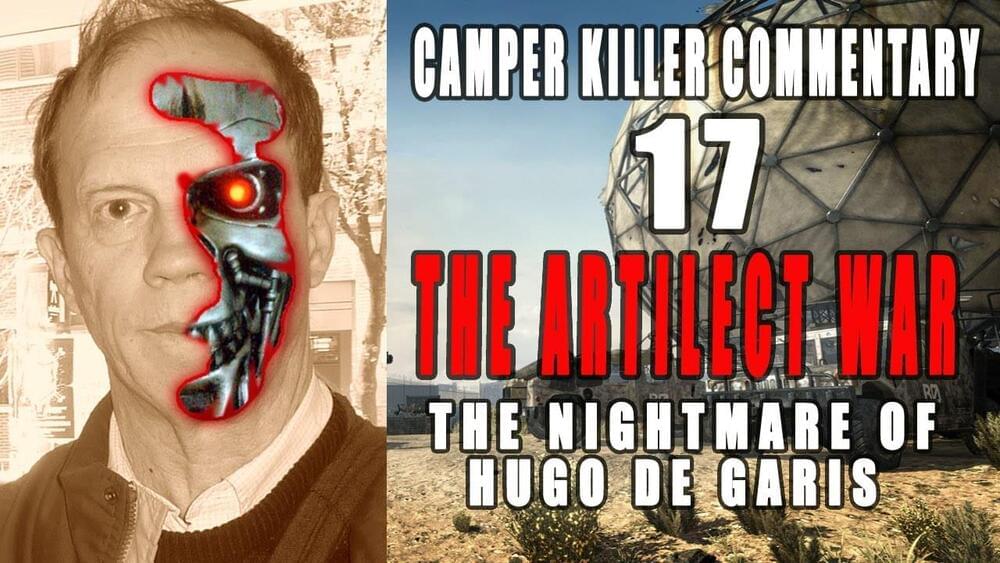
The world famous Artificial Intelligence designer/expert Hugo de Garis has some horrific views on the future of technology. He demands people listen to his warnings wherever he goes. I thought I’d help him spread his nightmare with Camper Killer Commentary 17 “The Artilect War. The Nightmare of Hugo de Garis”. I hope you enjoy learning about your doom.
Sep 24, 2022
Hugo de Garis — AI, Species Dominance and Our Cybernetic Future
Posted by Dan Breeden in categories: futurism, robotics/AI
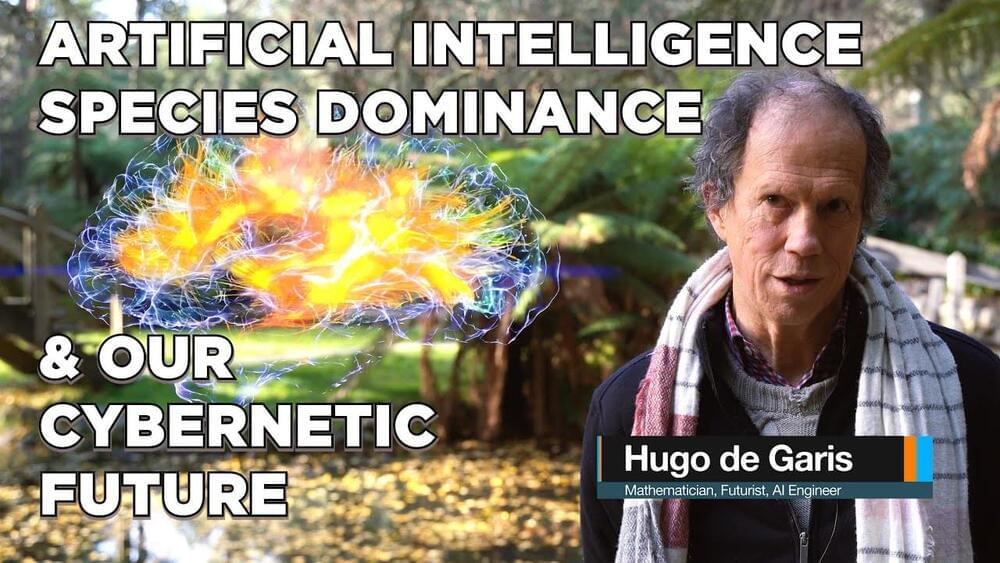
Hugo de Garis on AI, the story leading up to where we are now, and the possibilities for AI in the not too distant future. We have seen AI sprint past us in many cognitive domains, and in the coming decades we will likely see AI creep up on human level intelligence in other domains — once this becomes apparent, AI will become a central political issue — and nations will try to out-compete each other in dangerous AI arms-race.
As AI encroaches further into areas of economic usefulness where humans traditionally dominated, how might avoid uselessness and stay relevant? Merge with the machines say’s Hugo.
Many thanks to Forms for the use of the track “Close” — check it out: https://www.youtube.com/watch?v=nFY0JbwrPlE | Bandcamp: https://soundcloud.com/forms308743226
Continue reading “Hugo de Garis — AI, Species Dominance and Our Cybernetic Future” »
Sep 24, 2022
JWST observes Earendel — the most distant star known — 12.8 billion ly away | Night Sky News Sep ‘22
Posted by Dan Breeden in categories: asteroid/comet impacts, chemistry, existential risks, information science, physics
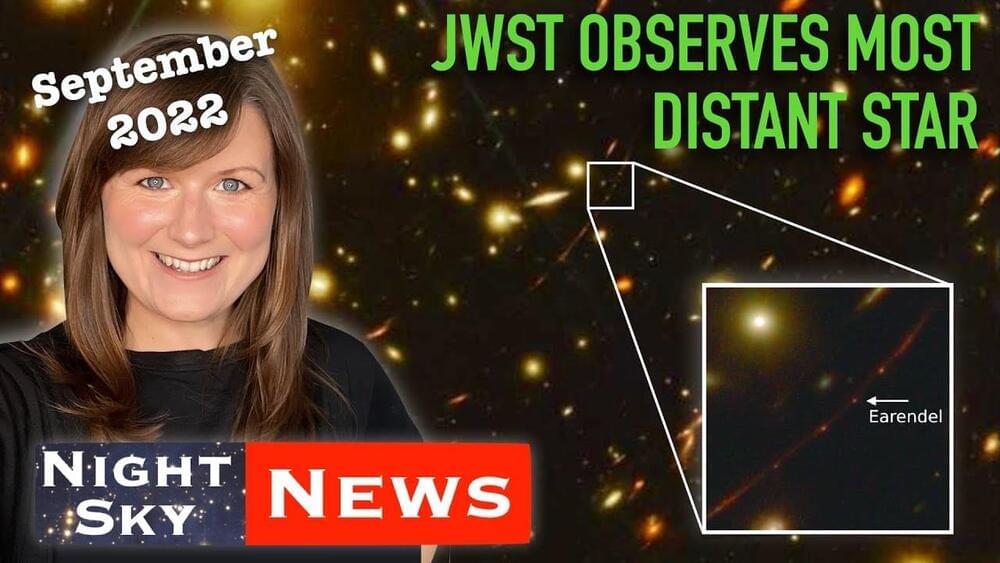
For Physics & Chemistry experiments for kids delivered to your door head to https://melscience.com/sBIs/ and use promo code DRBECKY50 for 50% off the first month of any subscription (valid until 22nd October 2022).
To find out whether you can see the partial solar eclipse on 25th October 2022 put in your location here: https://www.timeanddate.com/eclipse/map/2022-october-25
Sep 24, 2022
Musing on Understanding & AI — Hugo de Garis, Adam Ford, Michel de Haan
Posted by Dan Breeden in categories: education, existential risks, information science, mapping, mathematics, physics, robotics/AI

Started out as an interview ended up being a discussion between Hugo de Garis and (off camera) Adam Ford + Michel de Haan.
00:11 The concept of understanding under-recognised as an important aspect of developing AI
00:44 Re-framing perspectives on AI — the Chinese Room argument — and how can consciousness or understanding arise from billions of seemingly discreet neurons firing? (Should there be a binding problem of understanding similar to the binding problem of consciousness?)
04:23 Is there a difference between generality in intelligence and understanding? (and extentionally between AGI and artificial understanding?)
05:08 Ah Ha! moments — where the penny drops — what’s going on when this happens?
07:48 Is there an ideal form of understanding? Coherence & debugging — ah ha moments.
10:18 Webs of knowledge — contextual understanding.
12:16 Early childhood development — concept formation and navigation.
13:11 The intuitive ability for concept navigation isn’t complete.
Is the concept of understanding a catch all?
14:29 Is it possible to develop AGI that doesn’t understand? Is generality and understanding the same thing?
17:32 Why is understanding (the nature of) understanding important?
Is understanding reductive? Can it be broken down?
19:52 What would be the most basic primitive understanding be?
22:11 If (strong) AI is important, and understanding is required to build (strong) AI, what sorts of things should we be doing to make sense of understanding?
Approaches — engineering, and copy the brain.
24:34 Is common sense the same thing as understanding? How are they different?
26:24 What concepts do we take for granted around the world — which when strong AI comes about will dissolve into illusions, and then tell us how they actually work under the hood?
27:40 Compression and understanding.
29:51 Knowledge, Gettier problems and justified true belief. Is knowledge different from understanding and if so how?
31:07 A hierarchy of intel — data, information, knowledge, understanding, wisdom.
33:37 What is wisdom? Experience can help situate knowledge in a web of understanding — is this wisdom? Is the ostensible appearance of wisdom necessarily wisdom? Think pulp remashings of existing wisdom in the form of trashy self-help literature.
35:38 Is understanding mapping knowledge into a useful framework? Or is it making accurate / novel predictions?
36:00 Is understanding like high resolution carbon copy like models that accurately reflect true nature or a mechanical process?
37:04 Does understanding come in gradients of topologies? Is there degrees or is it just on or off?
38:37 What comes first — understanding or generality?
40:47 Minsky’s ‘Society of Mind’
42:46 Is vitalism alive in well in the AI field? Do people actually think there are ghosts in the machines?
48:15 Anthropomorphism in AI literature.
50:48 Deism — James Gates and error correction in super-symmetry.
52:16 Why are the laws of nature so mathematical? Why is there so much symmetry in physics? Is this confusing the map with the territory?
52:35 The Drake equation, and the concept of the Artilect — does this make Deism plausible? What about the Fermi Paradox?
55:06 Hyperintelligence is tiny — the transcention hypothesis — therefore civs go tiny — an explanation for the fermi paradox.
56:36 Why would *all* civs go tiny? Why not go tall, wide and tiny? What about selection pressures that seem to necessitate cosmic land grabs?
01:01:52 The Great Filter and the The Fermi Paradox.
01:02:14 Is it possible for an AGI to have a deep command of knowledge across a wide variety of topics/categories without understanding being an internal dynamic? Is the turing test good enough to test for understanding? What kinds of behavioral tests could reliably test for understanding? (Of course without the luxury of peering under the hood)
01:03:09 Does AlphaGo understand Go, or DeepBlue understand chess? Revisiting the Chinese Room argument.
01:04:23 More on behavioral tests for AI understanding.
01:06:00 Zombie machines — David Chalmers Zombie argument.
01:07:26 Complex enough algorithms — is there a critical point of complexity beyond which general intelligence likely emerges? Or understanding emerges?
01:08:11 Revisiting behavioral ‘turing’ tests for understanding.
01:13:05 Shape sorters and reverse shape sorters.
01:14:03 Would slightly changing the rules of Go confuse AlphaGo (after it had been trained)? Need for adaptivity — understanding concept boundaries, predicting where they occur, and the ability to mine outwards from these boundaries…
01:15:11 Neural nets and adaptivity.
01:16:41 AlphaGo documentary — worth a watch. Progresses in AI challenges human dignity which is a concern, but the DeepMind and the AlphaGo documentary seemed to be respectful. Can we manage a transition from human labor to full on automation while preserving human dignity?
Filmed in the dandenong ranges in victoria, australia.
Many thanks for watching!
Sep 24, 2022
Marvin Minsky — Why is Consciousness so Mysterious?
Posted by Dan Breeden in categories: neuroscience, particle physics
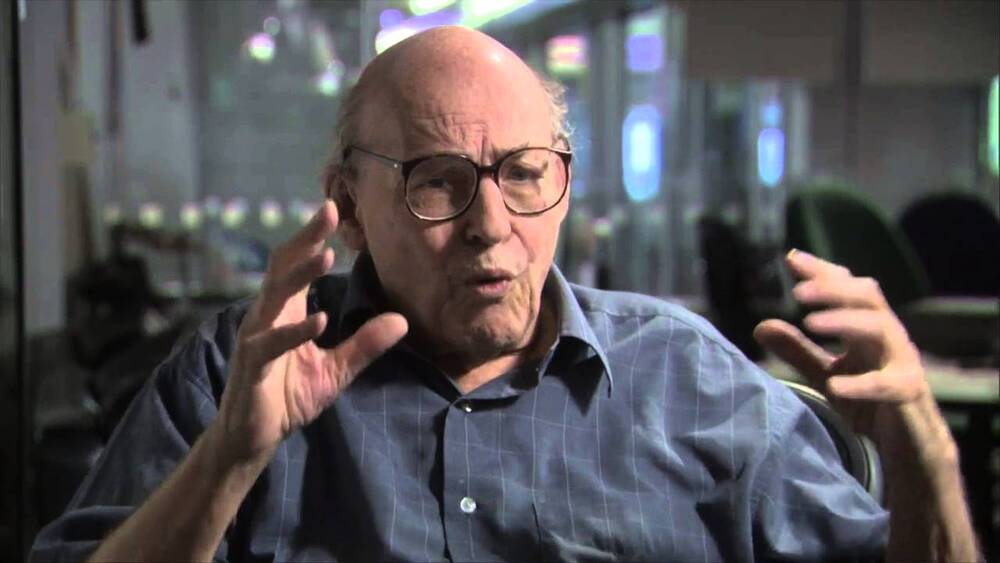
How can the mindless microscopic particles that compose our brains ‘experience’ the setting sun, the Mozart Requiem, and romantic love?
For all of our video interviews please visit us at www.closertotruth.com
